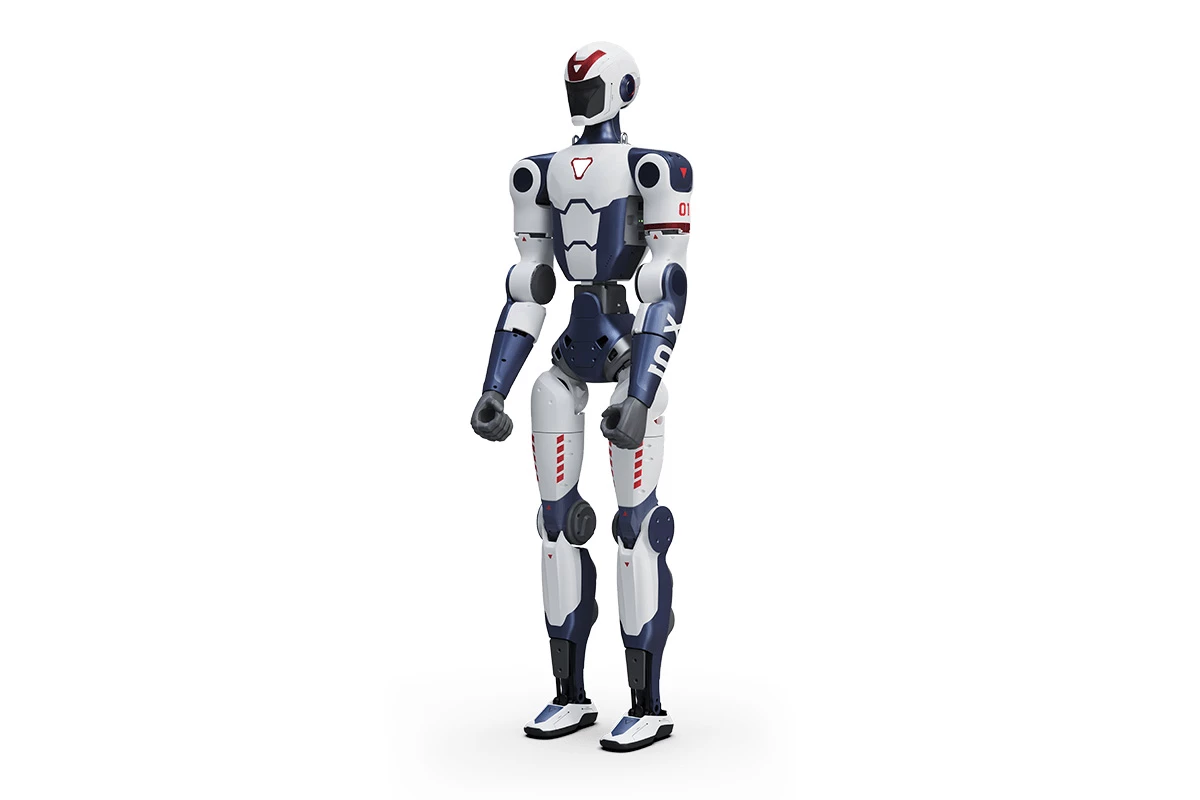Chinese robotics firm Unitree has launched the R1, its most affordable humanoid robot, at a shockingly low asking price of US$5,900. It's hard to fathom that you can now get a walking, command-obeying machine that costs less than one of Leica's Q3 enthusiast-grade cameras.
The R1 measures just below 4 ft (1,210 mm) in height, weighs about 55 lb (25 kg), and has a total of 26 joints. It's good for about an hour of activity on a single charge of its internal battery, supports Wi-Fi and Bluetooth, and of course, features a camera, mics, and speakers for communication.
With all those joints and a relatively low weight, this humanoid is plenty flexible. You can see what appears to be a video of its athletic capabilities below (it looks actual footage, but I just can't be sure... We've contacted Unitree to ask, and will update this piece if and when they get back to us).
Unitree Introducing | Unitree R1 Intelligent Companion Price from $5900
— Unitree (@UnitreeRobotics) July 25, 2025
Join us to develop/customize, ultra-lightweight at approximately 25kg, integrated with a Large Multimodal Model for voice and images, let's accelerate the advent of the agent era!🥰 pic.twitter.com/Q5pmkfFZZa
While the movements above are indeed impressive, it's worth noting the R1 is missing a couple of key things – notably, hands. Unlike Unitree's more advanced humanoids, the R1 doesn't have dexterous mitts that can grip and manipulate objects.
Between the lack of paws, the relatively low battery life, and its short height, the R1 isn't going to be very useful out of the box. Don't expect to power it on and immediately have it do your laundry and dishes, and take out the trash. What it is good for right now, though, is research and education.

By that I mean that scientists are using it to test what they can train robots to do with their algorithms and AI models, and also testing the capabilities and reliability of these robots as they're programmed to perform various tasks in industrial settings. For example, automaker Geely is trialing a Unitree robot on its assembly line to see how it can assist with vehicle production.
Whichever way you slice it, it's still amazing that you can buy a functioning humanoid robot with these specs at this price already.
For reference, Unitree's general-purpose H1 robot that can climb stairs and do backflips costs $90,000, while the lower-end G1 comes in at $16,000. Tesla's hotly anticipated Optimus is expected to land somewhere between $20,000 - $30,000. So what's remarkable here is that in this early adoption phase, the price of a humanoid robot has dropped significantly with the R1, well before a path to mainstream adoption has been established.
If you're dead serious about getting a more customizable robot, the R1 can be had in an 'EDU' version with dexterous hands, each of which cost about $5,200. That version will also cost more, thanks to the inclusion of a higher-end computing module on board.
With this sub-$6,000 price tag, Unitree has set the stage for more humanoids to feature in automation experiments. Expect to see it in use among industrial companies running pilot programs, research institutions, and early adopters interested in robotics development.
Source: Unitree
New Atlas may make a commission when you purchase via the Amazon link. Thank you!




